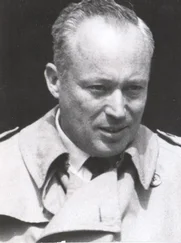Armageddon - Leon Uris
Здесь есть возможность читать онлайн «Armageddon - Leon Uris» весь текст электронной книги совершенно бесплатно (целиком полную версию без сокращений). В некоторых случаях можно слушать аудио, скачать через торрент в формате fb2 и присутствует краткое содержание. Жанр: Старинная литература, на английском языке. Описание произведения, (предисловие) а так же отзывы посетителей доступны на портале библиотеки ЛибКат.
- Название:Leon Uris
- Автор:
- Жанр:
- Год:неизвестен
- ISBN:нет данных
- Рейтинг книги:4 / 5. Голосов: 1
-
Избранное:Добавить в избранное
- Отзывы:
-
Ваша оценка:
- 80
- 1
- 2
- 3
- 4
- 5
Leon Uris: краткое содержание, описание и аннотация
Предлагаем к чтению аннотацию, описание, краткое содержание или предисловие (зависит от того, что написал сам автор книги «Leon Uris»). Если вы не нашли необходимую информацию о книге — напишите в комментариях, мы постараемся отыскать её.
Leon Uris — читать онлайн бесплатно полную книгу (весь текст) целиком
Ниже представлен текст книги, разбитый по страницам. Система сохранения места последней прочитанной страницы, позволяет с удобством читать онлайн бесплатно книгу «Leon Uris», без необходимости каждый раз заново искать на чём Вы остановились. Поставьте закладку, и сможете в любой момент перейти на страницу, на которой закончили чтение.
Интервал:
Закладка:
“But, Colonel ... anybody in his right mind knows you can’t bomb coal.”
“If, just if, we can drop coal sacks in Berlin in an open field ... just if, I say, it would save thousands of hours of landing, unloading, and turning around. We’ve got to try out all ideas.”
Scott shook his head. “Your show, sir.”
Scott made a short flight to the outskirts of Offenbach to where an open field was marked out for the experiment. He flew low over it and flapped his wings to tell the ground observers he had spotted the target area.
On the edge of the white circle stood Hiram Stonebraker, Clinton Loveless, Perry Sindlinger, and a half-dozen other eager members of the staff.
Scott circled the craft to come in downwind, dropped to three-hundred-foot altitude, reduced air speed, and as he hit the edge of the circle a signal was sent back to a crew who released duffel bags filled with coal. They zoomed earthward. He made two more passes flying slower and lower, enabling many more sacks of coal to be thrown out of the door.
The duffel bags burst into shreds as they hit the ground and the coal was splintered into fractions. An angry black column of dust arose, raining down a storm of coal, and the winds sprayed and spewed it for miles beyond the target area.
The observers on the ground were gagged and blanketed with dust and in a moment resembled characters in a high school play using burnt cork on their faces.
Clint saw Perry Sindlinger, whose eyes resembled two burned holes in a blanket. He started to laugh, tried to control himself, because somebody there didn’t think it was very funny. They bit their lips to contain themselves as a pitch-black Hiram Stonebraker faced them.
“Doesn’t work,” Stonebraker said.
Chapter Fourteen
MARSHAL ALEXEI POPOV HAD made an error. He decided to allow a Western journalist to tour the Soviet Zone of Germany to “prove” freedom of the press. Nelson Goodfellow Bradbury was chosen.
His articles became increasingly more terse and when faced with censorship he began smuggling out stories through those mysterious channels known only to the society of newspapermen.
The last article had deep repercussions:
POPOV’S FOLLY. A FARCE IN THREE ACTS by Nelson Goodfellow Bradbury.
Until recently the Communists continued to go to elaborate lengths in East Germany to parade in public members of opposition parties to “prove” political freedom existed in the worker’s paradise. Berthold Hollweg is their most famous relic.
This farce of showcasing a few inept democratic politicians is over. Also over is freedom of speech, assembly, justice, worship, and all those other petit bourgeois annoyances tolerated by the decadent capitalist society.
The consolidation of the Soviet Zone of Germany is complete. The last voice of freedom is still. Any hope for democracy is dead.
V. V. Azov, a mysterious puppet master, calls the plays from a shuttered mansion in Potsdam.
The life and times of Comrade Rudi Wöhlman show him to be perfect in the role of a ventriloquist’s dummy. Wöhlman is about ready to call together a “people’s” congress. At the end of the congress plans will be announced for a “People’s Republic” with Leipzig as the provisional capital.
Later, when the West is hopefully squeezed out of Berlin, this city will be named capital of the newest police state.
A four-hundred-thousand-man para-military “People’s Police,” which is the nucleus of an East German Army, are in existence to persuade the people that this is the right thing. The existence of this organization is in violation of all agreements to cleanse militarism from German life.
A back-up force of twenty divisions of infantry and armor under the command of Marshal Popov ensures full acceptance of the new way of life.
Why is there such a panic to form a People’s Republic while the Communists continue to talk out of the other side of their mouths for unification?
The call for unification is the most hideous libel in all of the postwar Soviet profanities. The fact is the Soviet Union lives in terror of a reunited Germany which they cannot control.
They cannot control Germany so long as the West remains. They cannot win Germany through free elections.
The West is beginning to hammer out its own plans for the political and economic merger of their zones and, therefore, the Soviet Union must make unification impossible by the creation of a puppet state.
The fat, sad-eyed reporter was denounced in traditional terms as a “reactionary tool of yellow journalism” and ejected from the Soviet Zone through the Brandenburg Gate and advised he could never, never return.
Sean was happy to learn that Big Nellie was back in Berlin, for life granted him few real friends. The Press Club in Dahlem was jammed with journalists now who had been caught up in the Berlin story. It was good, Sean thought. The press had been a faithful ally of General Hansen from the beginning, and at last the Airlift story was catching the public fancy.
Sean brought Big Nellie up to date on the events in Berlin. The Lift had set down two thousand tons the day before. This was less than half the required daily minimum, but more Skymasters were on the way. He spoke of the big building programs at Tempelhof and Gatow.
“As a matter of fact, I just left two of Stonebraker’s men. They’re scouting around in the French Sector for a site for a third airfield.”
Sean said the Berliners were holding up unbelievably under intolerable conditions, but there was a growing fear among Falkenstein and the German leaders that the West might negotiate Berlin away without their having a voice in their own fate.
Big Nellie handed Sean a copy of the column he had just filed. “It’s a masterpiece,” he said.
Sean smiled. As usual, he had found a unique thesis.
SOPHISTICATED SIEGE
by Nelson Goodfellow Bradbury
All of the classic definitions of the word “siege” are defied by the bizarre blockade of Berlin. It is a situation unique in history.
Man has laid siege to man from the mythological siege of ancient Troy to the Biblical sieges of Jerusalem and Jericho on through to the sieges of Carthage and Paris and in recent years we saw it in the blockades of the Spanish Civil War.
Until Berlin, all sieges have had the goal of military victory. Long and involved sieges were embarked upon to starve and demoralize the besieged and followed by an attack that spelled destruction or submission. The Siege of Berlin breaks all of the rules and in many ways does the complete opposite of historic conceptions. In Berlin the enemies live side by side, eat together in the same cafes, swim in the same lakes, attend opera together, and in some instances have social contact.
Here, the enemies go to extremes
not to get into a fight.
This is a battle of will power. The protagonists battle for the minds and souls of men.
The phenomenon runs through the performance of normal life. The railroads, canals, sewage plants, phone systems continue to function only by cooperation between the Russians and the West even though there is no official contact between them.
Even the Airlift is closely watched by Russians in a four-power Air Safety Center.
Two separate police forces cooperate on certain criminals. Populations shift daily by hundreds of thousands through public transportation facilities.
The city administration has the ridiculous and near impossible task of trying to serve two masters while being voted into office to serve a third. And while the Berlin Magistrat is forced to take orders from both sides you will find duly elected Communists in public office in the Western Sectors and duly elected borough mayors from the democratic parties in office in the Soviet Sector.
Читать дальшеИнтервал:
Закладка:
Похожие книги на «Leon Uris»
Представляем Вашему вниманию похожие книги на «Leon Uris» списком для выбора. Мы отобрали схожую по названию и смыслу литературу в надежде предоставить читателям больше вариантов отыскать новые, интересные, ещё непрочитанные произведения.
Обсуждение, отзывы о книге «Leon Uris» и просто собственные мнения читателей. Оставьте ваши комментарии, напишите, что Вы думаете о произведении, его смысле или главных героях. Укажите что конкретно понравилось, а что нет, и почему Вы так считаете.











